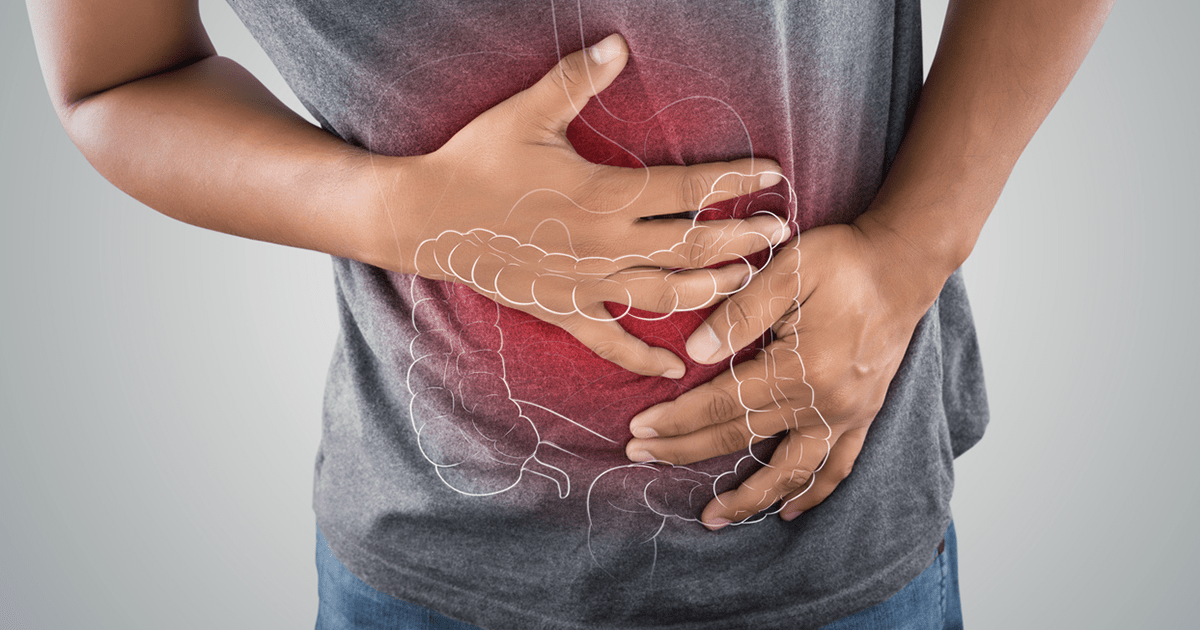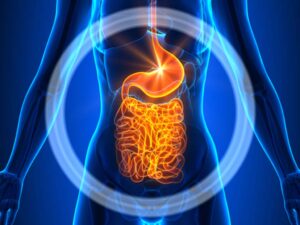
CBD and Irritable Bowel Syndrome
CBD and Irritable Bowel Syndrome
What is irritable bowel syndrome (IBS)
Irritable bowel syndrome (IBS) is a chronic, relapsing and often life‑long disorder consisting of a collection of symptoms:
- Excess gas and bloating.
- Abdominal pain or cramping; lower abdominal pain is the most common symptom of IBS.
- Diarrhoea or constipation.
- Changes in Bowel movements
- Food intolerance.
- Anxiety and fatigue.
This disorder is strongly linked to fibromyalgia – a condition that involves chronic pain. Approximately 60% of those with IBS also suffer from fibromyalgia, while up to 90% of fibromyalgia patients also have IBS symptoms.
While there currently isn’t cure for IBS, there are numerous ways to treat the condition and ease the symptoms. But, there is also a lot of debate about how effective these treatments are, and if they really work. Many of these methods involve adapting your lifestyle, which isn’t always easy and can take time.
What can cause/trigger IBS flare ups?
The cause of irritable bowel syndrome (IBS) is not completely understood. There are a few possible factors like genetics and prior adverse life experiences (e.g., infection, trauma) that can predispose someone to get IBS.
The symptoms appear to result from disturbances in colonic motility (muscle contractions) and increased sensitivity to food, gas, or stool in the bowel.
Finally, there is a tendency for the bowel to be overly reactive to various factors, which can amplify or bring about the symptoms.
- Eating/diet
- Stress/physical
- Emotional issues/physiological stress
- GI Infections
- Menstrual cycles/hormonal changes
- Abdominal bloating/gas build up

Can CBD relive the symptoms of IBS?
The cannabis plant has been utilized for thousands of years to treat many gastrointestinal problems, including diarrhoea, nausea and vomiting, intestinal pain, and inflammation in the bowels.
Our bodies naturally produce cannabinoids and these can play an important role in regulating the gastrointestinal system, which it has many receptors within it (CBD1 and CBD2 receptors) that help these cannabinoids to function. Ultimately, receptors that also help ingested cannabinoids, like CBD, to directly impact the health of the gastrointestinal system, and in conditions like IBS.
Here are several ways that CBD and IBS might work well together.
- CBD can ease and relieve the effects of nausea. Nausea is a common symptom of IBS, making it difficult for patients to eat regularly. This can cause IBS symptoms to flare up when the person finally eats after long periods of time, the CBD can help to ease this symptoms, making it easier for the person to keep food down.
- CBD may help to relax the tissue in the GI tract, which and ease the stomach cramps.
- CBD can help reduce pain and inflammation in the person’s digestive system, helping to reduce the symptoms of IBS and the associated discomfort.
How does CBD work for IBS Symptoms ?
While CBD has a variety of effects on the human body, it is believed to work in the following ways when it comes to IBS symptoms.
The balancing of inflammation, emotion, and pain levels in our bodies is managed, in part, by the endocannabinoid system (ECS). The ECS has been identified to regulate the organs and help synergies with the immune system.
To help relive inflammation, pain, and anxiety in the gut, CBD has a variety of cannabinoids and anandamide which attach to the CB1 and CB2 receptors of the ECS, which are located along the digestive tract.
How to take CBD to help with IBS
If you are new to CBD we recommend you start on a low dose,, gradually building up to a stronger dose only if it feels necessary. Our 5 %, 500mg Full Spectrum CBD Oil is a good option for beginners.
To take CBD oil orally, we recommend you take 1 to 2 drops under the tongue twice per day, morning and night. Keep the drops under your tongue for a minimum of one minute before swallowing. This enables the CBD to get into your bloodstream faster so it can more rapidly begin to take effect.
If this is not your preferred way to enjoy the potential benefits of CBD, you may like to try our CBD Capsules.
Most people find that taking CBD oil at a regular time each morning has the best overall positive effect. CBD does not have drowsiness as a side-effect, and it does not contain the psychoactive element of cannabis, THC. This means that CBD does not produce a ‘high,’ and should not reduce your ability to go about your daily activities.
Conclusion
We are in need of better treatments for IBS sufferers. People with IBS and have tried CBD products and reported significant improvement in their symptoms. Research shows that IBS patients likely have an endocannabinoid deficiency. And the cannabinoids found in CBD oil positively affect this system. CBD products are in early stages of research for addressing IBS, and at this time, the outlook appears optimistic.
?CBD Product Disclaimer. The current classification of CBD is a supplement and is not intended to diagnose, treat, cure or prevent any disease. Store out of reach of young children & do not exceed recommended dose. Customer testimonials share personal results, everybody is different.



